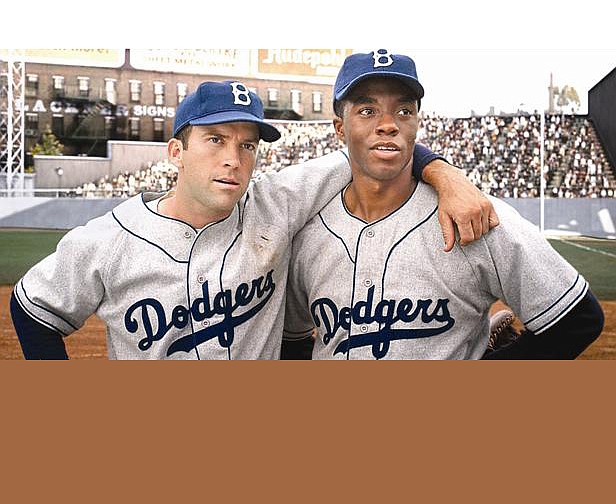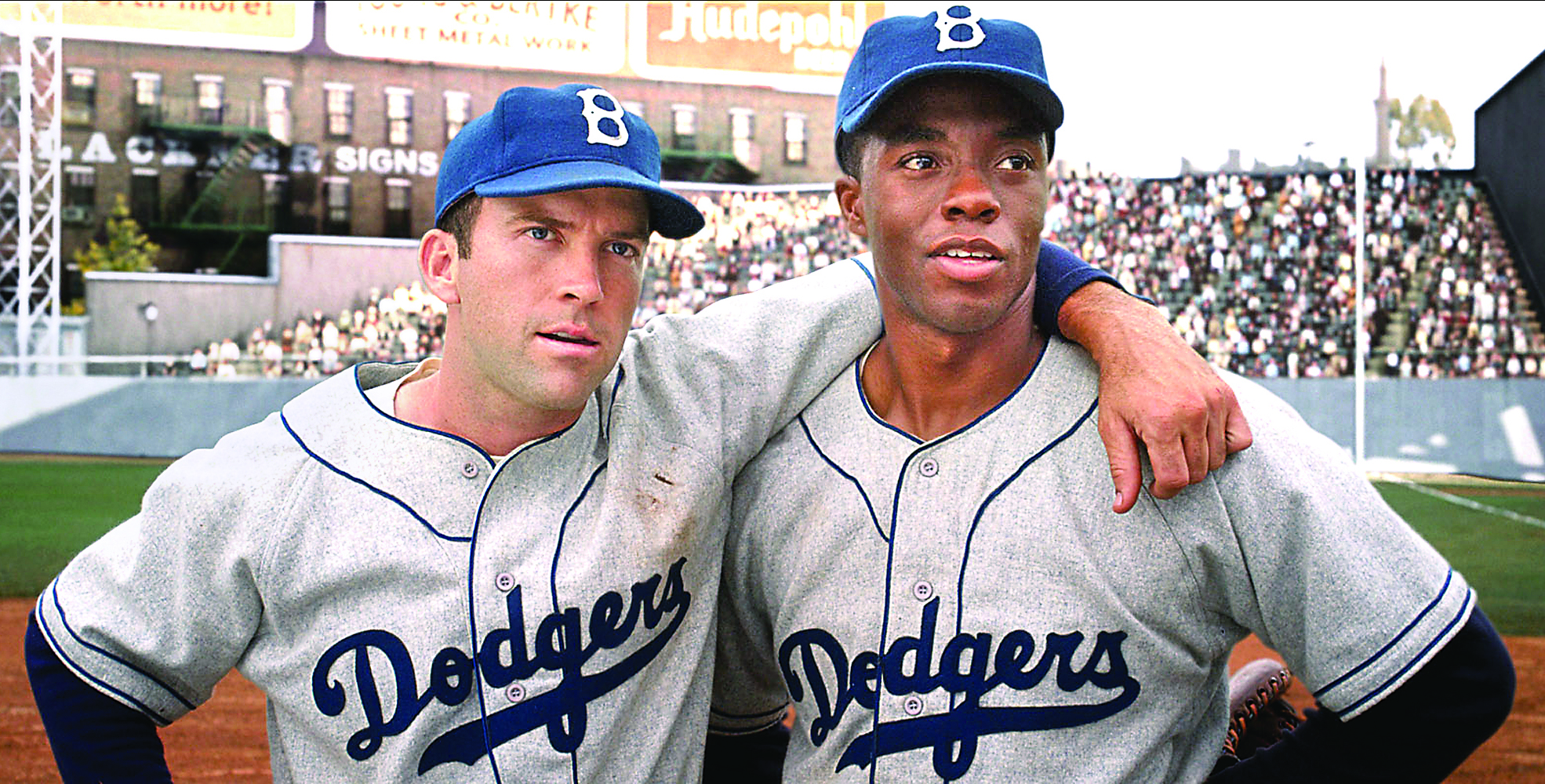When I was a kid, my favorite baseball player was Pee Wee Reese. I couldn't have explained why. I was too young to rattle off statistics or point to dazzling plays. But last week I sat in a darkened theater and realized just how well placed my hero-worship had been.
The movie was "42," the wrenching story of Jackie Robinson's ordeal as he broke the race barrier in Major League Baseball filmed, in part, in Chattanooga. As I mulled the story for days afterward, I realized it was less a chronicle of conflict and more a meditation on moral courage.
In 1945 Branch Rickey, general manager of the Brooklyn Dodgers, took his courage, and his life, in his hands and decided to sign an African-American player.
An article in Guideposts magazine states that "Rickey was a man of outspoken faith, guided by his Christian upbringing and Methodist roots." According to Rickey, his determination to break the color barrier in baseball stemmed from an incident in the early 1900's, during his tenure as baseball coach for Ohio Wesleyan University.
On a road trip, an innkeeper had denied a room to the team's only black player, catcher Charley Thomas. Rickey talked the desk clerk into letting Thomas sleep on a cot in his room, but the injustice of the situation, and the black man's reaction, came to haunt Rickey. He found Charley sitting in the room, weeping and tearing at the skin on his hands. "It's my skin; it's my skin, Mr. Rickey!"
Four decades later, as he contemplated signing a black player, Rickey said, "For 41 years I have heard that young man crying. Now, I am going to do something about it."
That "something" was Jackie Robinson.
"He's a Methodist. I'm a Methodist. And God's a Methodist," Rickey says in the film. "We can't go wrong."
According to the book, "Here's to You, Jackie Robinson," by Joe Formichella, Robinson's mother could offer him little hope for the future in his formative years:
"He had to, Jackie's mother was saying, put his faith in God. That was just about the very best stance any black person could assume, prior to 1947 ..."
Rickey and Robinson would call often on their faith in the months to come. The savage abuse Robinson suffered in his first 1947 season with the Dodgers reached into hell itself when the Phillies came to Brooklyn for a three-game series. In the movie, Phillies coach Ben Chapman taunted Robinson without mercy, chanting a racial epitaph repeatedly each time he stepped up to bat.
Robinson almost gave up on baseball that day. He walked off the field and into the tunnel, splintering his bat in rage against the brick walls. Rickey found him there, coiled in anguish. Turn the other cheek, Rickey reminded him. Don't fight back.
"Have you ever been treated that way?" Robinson asks, glaring at Rickey.
"No," Rickey replied. "But you're the one living the sermon. Forty days in the wilderness."
Robinson bridles, but Rickey was reminding Robinson that Christ himself "was in all points tempted as we are, yet without sin."
Tempted to give in to evil, tempted to give up.
"I'll need a new bat," Robinson says wearily.
In a later Dodger/Phillies matchup in Philadelphia, however, Chapman resumed his taunts, expanding them to include other Dodger players, most memorably, Pee Wee Reese.
Author Formichella recounts that "Reese responded by trotting over to Jackie and draping his arm around Robinson's shoulders, all the while staring into the dugout at Chapman."
There is debate as to when and where the act of solidarity actually transpired, but it speaks to Reese's moral courage.
"I want my friends and family to see who I am," Reese says in the film.
Formichella says of Robinson that "opposing players and coaches and fans hurled all manner of invective and insult and slur at him. He was gouged, beaned, spat upon; he had his life threatened. But he endured it all with restraint, even equanimity, for a greater purpose: Rickey's 'noble experiment.' "
So here's to you, Jackie Robinson, sanctifier of the Dodgers famed number "42." And to Branch Rickey and Pee Wee Reese. And here's to the manager whose almighty hand pulled off the biggest play in the history of American baseball: The God of the Methodists.
Carol Megathlin is a writer in Savannah, Ga.

